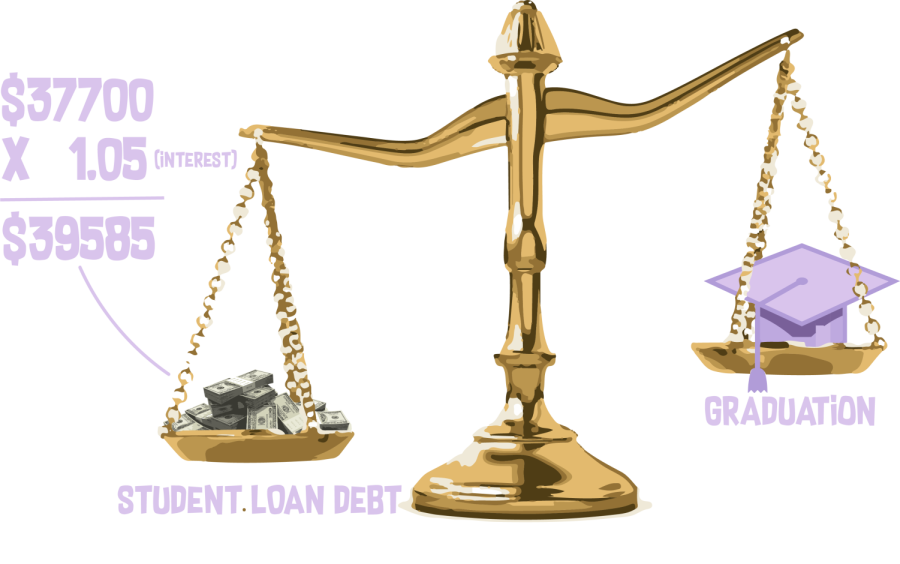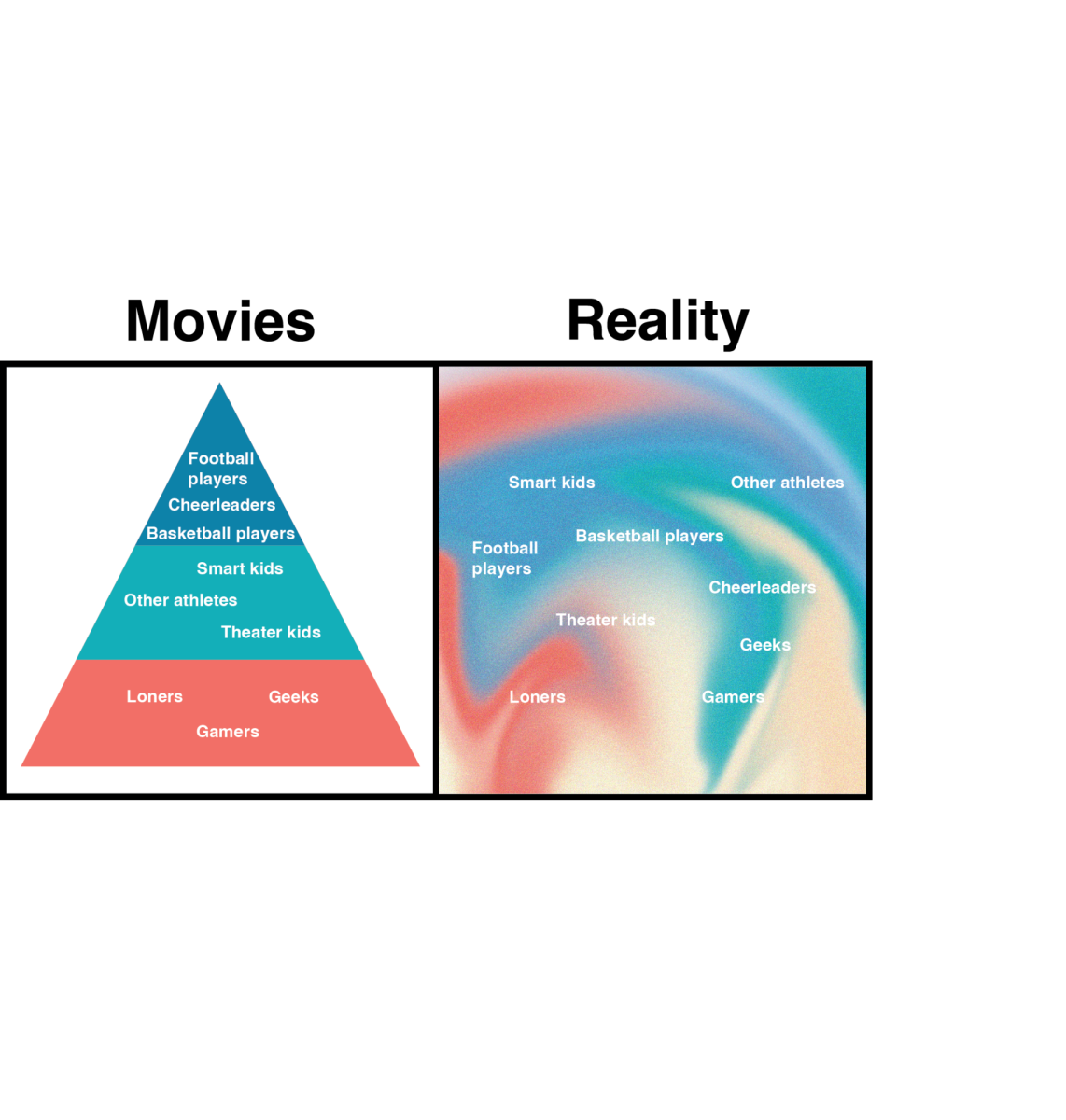In the United States, issues like inflation, interest rates, and unemployment are surging. As many Americans struggle to pay their bills, these growing problems are a significant reason why.
With 44 million Americans having outstanding student loans, it is the nation’s second-leading source of debt and a skyrocketing trend across America. At $1.7 trillion, the total cost of student loan debt in the U.S. is greater than the GDP of all but 11 countries.
The Biden administration launched the Student Loan Forgiveness Plan in October, where borrowers can be forgiven of up to $20,000 in student loan debt. According to budget officers, the plan will cost around $400 billion.
“As someone who has student loan debt, it is definitely a way for us to relieve some of that,” science teacher Bryan Moretz said.
By White House estimates, the plan will erase all loan debt for nearly 20 million people, though some argue that the plan only serves as a temporary solution to an underlying problem — rising tuition prices.
“My concern with the program is that it doesn’t really mitigate the underlying problem,” social science teacher Brandon Burmeister said. “This program is not incentivizing universities to lower tuition, so you end up in a cycle where you give debt forgiveness out, but then what’s gonna happen in five years.”
Over the past 20 years, college tuition has more than doubled while minimum wage has stagnated compared to ever-increasing inflation rates. Combine increasing tuition with competitive high schools and more college applicants than ever before, certain subsets of the population are barred from continuing their education or forced to take on student loan debt.
“You have to find a way to mitigate [tuition inflation],” Burmeister said. “If that includes investing in more universities to increase the supply and the availability of higher education, then maybe it’s time for us to go with the Lincoln route and do another Universal Education Bill.”
In 1862, President Lincoln gave Senators land-grants to create more public universities and in doing so, tuition was lowered. Though tuition costs are rising at only 2% per year, more people than ever are taking out loans when going to college. Americans aren’t making enough money to keep up, especially with minimum wage not being raised in over 19 years.
“Students often regret taking on significant debt for undergraduate studies as it can take years to pay off,” director of college counseling Christine Grover said. “I have seen students, against counselor advice, take on so much undergraduate debt that they cannot afford to go to graduate school. Therefore they are forced into a lower-paying job.”
Middle class citizens are being priced out of universities and have to go to budget-oriented community colleges instead. Many postgraduates are even forced into dropping out of college or taking a drastic career change to counteract their rising debt.
Interest rates are another factor for those considering financing their education through loans. At 5% per year, that is a significant amount of extra money alums are paying over time. In turn, their poor credit scores don’t give them the opportunity to purchase things such as a car or house.
“We’ve been paying student loans for a long time, and some of us haven’t made a dent in it because our interest that’s accrued has been more than what we’ve actually been paying,” Moretz said.
Though the loan plan will lighten the financial burden of millions of alumni, there has been outcry from a number of citizens who recently paid off their loans.
“A subset of Americans are saying, ‘Well, I worked hard, I paid off my loans, I did it the right way,’” Burmeister said. “But, it’s never about fairness when it comes to the economy.”
Despite the recent controversy surrounding the bill, the support of debtors around the country is advancing it into the spotlight.
“It’s always been on the backburner, but if President Biden’s goal was to start a conversation, I think he definitely did that,” Burmeister said.
















